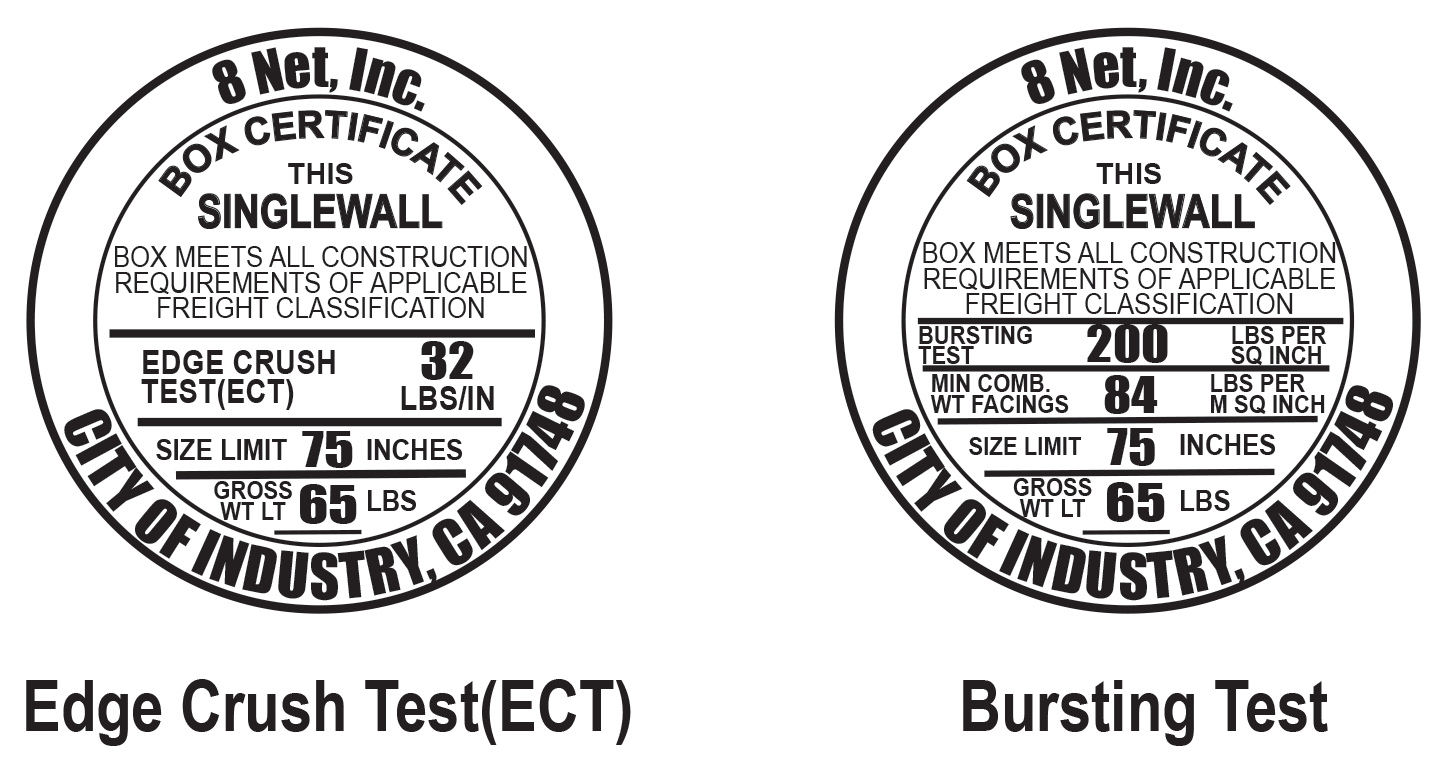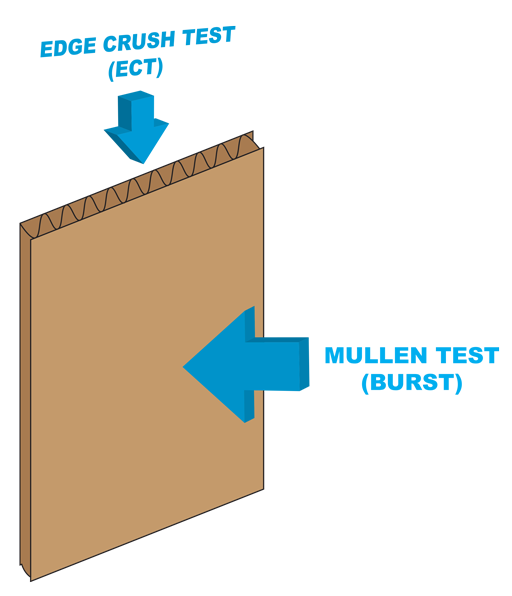1. 32 ECT Boxes
- 32 ECT (The Edge Crush Test) measures the stacking strength of corrugated boxes. In other words, it tests the amount of pressure a box can withstand before being crushed.
2. 200 LB Boxes
- 200 LB. test (Mullen Test / Bursting Test) measures the bursting strength of corrugated boxes. In other words, it tests the amount of force that is required to puncture the wall of the box.


3. What is the difference between 200 LB. test boxes and 32 ECT Boxes?
- 200 LB. Test boxes can handle more severe weight and provide better protection than 32 ECT boxes.
- The proper ECT rated corrugated provides an equivalent level of strength but uses less corrugated material.
| Corrugated Board Strength Equivalencies: | |||
| Bursting Test | Minimum Edge Crush Test | Maximum Load Per Caton | |
| Standard | 200 LB | 32 ECT | 40 lbs. |
| Heavy Duty | 275 LB | 44 ECT | 65 lbs. |
| Heavy Duty-Double Wall | 275 LB | 48 ECT | 80 lbs. |
4. RSC Boxes

- RSC (Regular Slotted Container) is the most common box style. All flaps have the same length, and the two outer flaps are one-half the container’s width, so that they meet at the center of the box when folded.
- Ideal for: shipping small individual items such as cups and mugs, books.
5. What is S/W and D/W?

- Single Wall Board: The most common style corrugate cardboard is manufactured.
- Double Wall Board: Also known as “heavy duty” corrugation which is commonly used for larger industrial containers or heavier objects. Much more resistant to breaking when stacked.

